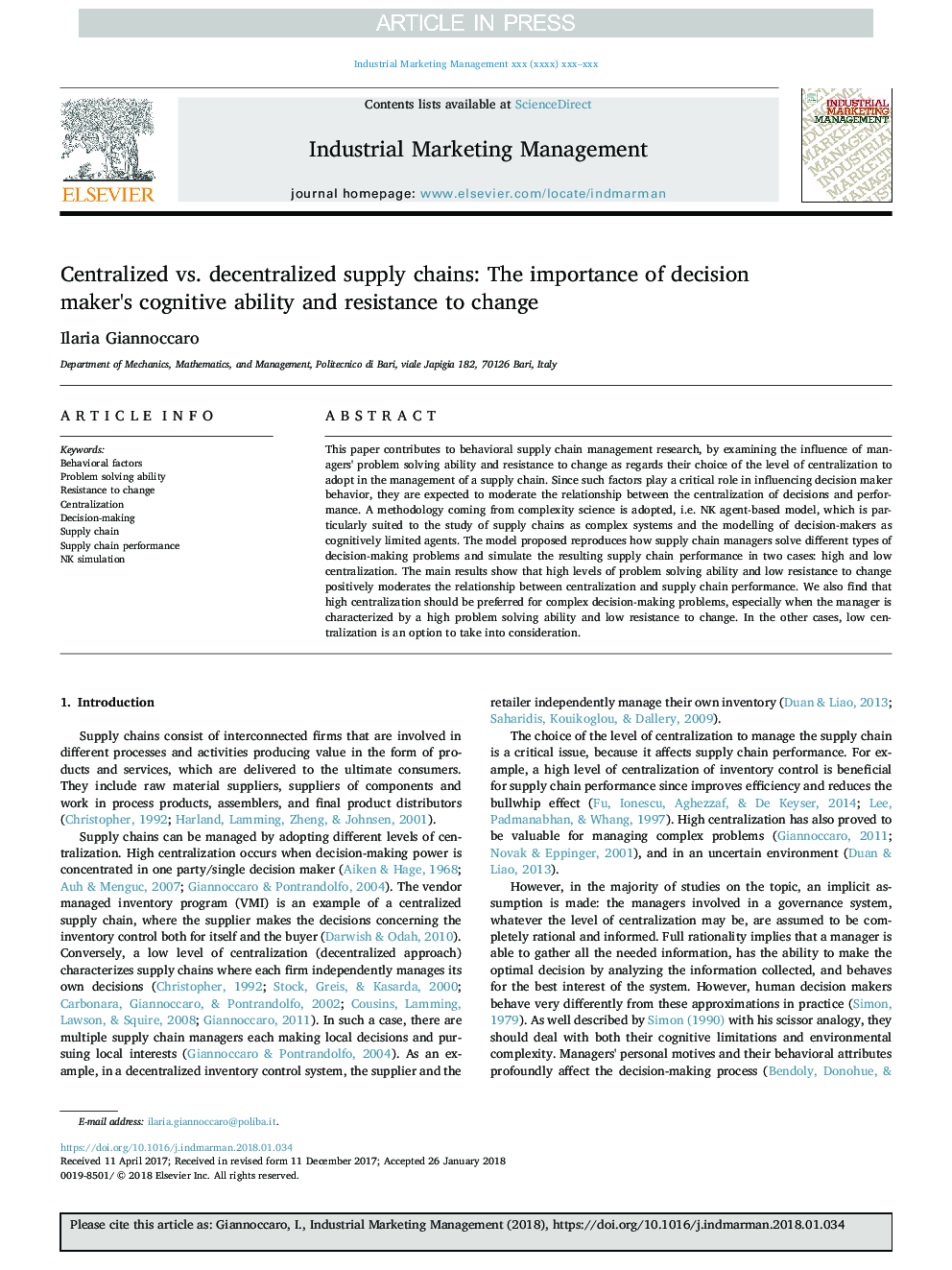| Article ID | Journal | Published Year | Pages | File Type |
|---|---|---|---|---|
| 8942454 | Industrial Marketing Management | 2018 | 11 Pages |
Abstract
This paper contributes to behavioral supply chain management research, by examining the influence of managers' problem solving ability and resistance to change as regards their choice of the level of centralization to adopt in the management of a supply chain. Since such factors play a critical role in influencing decision maker behavior, they are expected to moderate the relationship between the centralization of decisions and performance. A methodology coming from complexity science is adopted, i.e. NK agent-based model, which is particularly suited to the study of supply chains as complex systems and the modelling of decision-makers as cognitively limited agents. The model proposed reproduces how supply chain managers solve different types of decision-making problems and simulate the resulting supply chain performance in two cases: high and low centralization. The main results show that high levels of problem solving ability and low resistance to change positively moderates the relationship between centralization and supply chain performance. We also find that high centralization should be preferred for complex decision-making problems, especially when the manager is characterized by a high problem solving ability and low resistance to change. In the other cases, low centralization is an option to take into consideration.
Keywords
Related Topics
Social Sciences and Humanities
Business, Management and Accounting
Marketing
Authors
Ilaria Giannoccaro,
